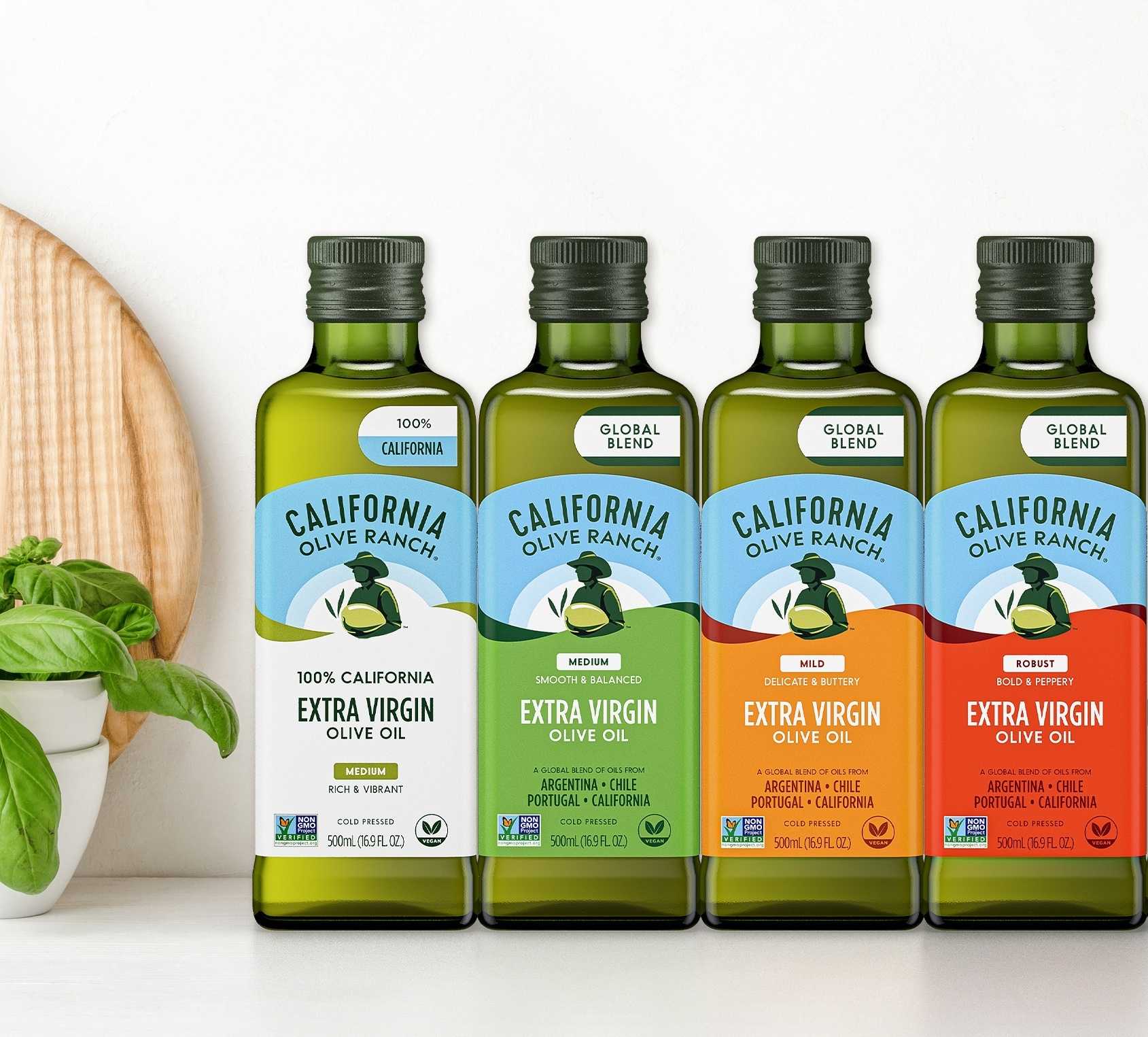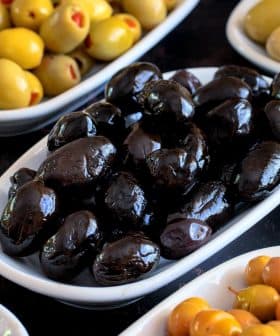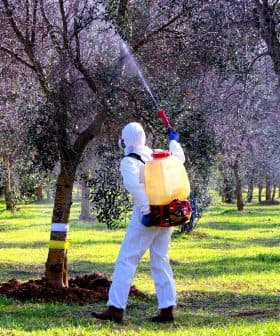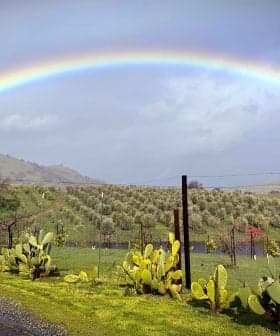Both Sides of Labeling Divide Satisfied As Amended Bill Passes California Senate

California’s State Senate passed an amended Assembly Bill 535 by a near-unanimous margin, which will now go to the governor’s desk and is expected to be signed into law. Proponents of the bill celebrated its passage as a victory for truth in labeling, while opponents were pleased with the concessions made in the senate that removed the most stringent requirements from the bill.
California’s State Senate has passed an amended Assembly Bill 535 by a near-unanimous margin. Thirty-eight state senators from both parties voted in favor of AB-535, with two abstentions.
The controversial olive oil labeling bill will now go to the governor’s desk, from which point it is expected to be signed into law.
Is it as wonderful as the original version? No. But that’s politics and I still think the spirit of the bill is intact. I still think it will help consumers and smaller domestic producers like us.
Proponents of the legislation celebrated the bill’s passage as a victory for truth in labeling, despite their contention that the final version of the bill had been significantly watered down.
Meanwhile, opponents of AB-535 were pleased with the concessions won in the senate that removed the most stringent requirements from the bill.
See Also:California’s Olive Oil Producers Face Uncertain Future as Historic Drought Continues“I am still 100-percent supportive of AB-535 even in its current condition,” Samantha Dorsey, the president of McEvoy Ranch and member of the California Coalition for Truth in Olive Oil Labeling (CCTOOL), which has lobbied heavily in favor of the bill since its introduction in 2020, told Olive Oil Times. “When it does pass, I think it will be a benefit for our state. The compromise is just part of that process.”
Originally, AB-535 sought to prohibit the use of the word ‘California’ on any label, brand name or official company documents if it was not produced from 100-percent California-grown olives.
“It is unlawful to label any olive oil with a representation that all the olives used to produce the olive oil were grown in California, including the terms ‘California olive oil,’ ‘California olives,’ or something substantially similar, unless all the olives used to produce the olive oil were grown in California,” the original text of the bill read.
Supporters of the bill said the legislation – in its original wording – was designed to end misleading practices and level the playing field by making sure the word ‘California’ was solely associated with California products and not imported blends.
Meanwhile, opponents of the bill, including California Olive Ranch (COR), the largest olive oil producer in the United States, said the bill was a less-than-subtle attempt to punish large producers.
However, Michael Fox, the company’s CEO, told Olive Oil Times that he was satisfied with the compromises reached in the Senate. The amended bill will allow the company to keep their Global Blend brand, which is made with olives from California, Portugal, Argentina and Chile, under the COR label.

California Olive Ranch
“It’s a compromise, and we were really grateful for the author’s office for being willing to work with us and hats off to the Senate Agriculture Committee,” Fox said. “I don’t think everyone got what they wanted, but that’s what compromise is, getting to a place that we can all live with.”
The new language of the bill states that companies such as COR can keep “California” prominently emblazoned at the top of labels of products made with olives grown outside of California as long as the minimum percentage of olives from California is placed on the label in the same font, size and color.
“This bill would also require a container of olive oil produced, processed, sold, offered for sale, given away or possessed in California that includes ‘California’ in any form on its principal display panel and contains olive oil derived from olives grown outside California to disclose the minimum percentage of olive oil in the container derived from olives grown in California,” the amended bill reads. “The bill would prescribe specific language to make the disclosure and require that it be in the same font, size and color as the word ‘California.’”
Once the bill is signed into law, a process that may be complicated by the gubernatorial recall election set to take place on September 14, the new regulations will apply to all olive oil produced after December 31, 2021.
Despite the uncertainty surrounding the recall election on the current legislative session, Fox said COR is already making the appropriate changes to the Global Blend brand, acting as if the law has already been passed.
“We assume that the law will be signed, and so we are in the process of making changes to our labels,” he said. “Our Global Blend series will be updated to reflect these compliance needs.”
Along with limiting the use of the term “California” on olive oil labels in the state, the original version of AB-535 also sought to limit the use of or reference to specific California regions unless 85 percent of the olives used to make the oil were grown in that region.
See Also:A Third of The Best American Olive Oils Come from This California Region“It is unlawful to label any olive oil with a label indicating or representing that the olives used to produce the olive oil were grown in a specific region of California, or to make a representation to that effect, unless at least 85 percent of the olive oil, by weight, was produced from olives grown in that specific region,” the original version of the bill read.
However, his part of the bill was also amended – watered down, in the view of its proponents – to allow companies such as Napa Valley Naturals to keep their brand name in place on bottles of olive oil in which less than 85 percent of the olives came from the referenced region.
“Olive oil produced, processed, sold, offered for sale, given away or possessed in California, that indicates on its label that it is from a specific region of California shall be made of oil at least 85 percent of which, by weight, is derived from olives grown in the specified region,” the amended bill reads.
“This section does not prohibit an olive oil producer or processor from using a truthful, non-misleading statement or representation regarding the geographic origin of the olives used in the production of the olive oil in any label, packaging material or advertising if the label, packaging material or advertising contains no representation that is prohibited by this section,” the amended bill continues.
According to an analysis of the bill by the law firm Keller and Heckman, which specializes in food and drug law, as long as companies such as Napa Valley Naturals do not connect the terms “olive oil” and Napa Valley on their labels or associated materials, they will remain compliant.
“For example, a brand name like ‘Napa Valley Naturals’ includes reference to a specific California region, but does not make representations that the olive oil is produced in that region, and thus would not be subject to the bill requirements,” the firm wrote. “However, a phrase like ‘Napa Valley olive oil’ would be required to meet the 85 percent requirement.”
While neither side of the divide over California’s truth-in-labeling debate got exactly what they wanted, both sides agreed that California consumers ultimately benefit from the new legislation.
“I think it will still be helpful for our consumers to see more clearly what is in the bottle,” Dorsey said. “Is it as wonderful as the original version? No. But that’s politics, and I still think the spirit of the bill is intact. I still think it will help consumers and smaller domestic producers like us.”
“The consumers that will really care about this are the [ones passionate about California olive oil],” Fox concluded. “If this helps them understand further, then we’re happy to do it.”









